Bachelor of
Clinical Sciences / Doctor of Medicine
Bachelor of
Clinical Sciences / Doctor of Medicine
Entry requirements
Key information
overall
overall
Additional entry requirements
- Applicants must have completed Year 12 (or equivalent) and must not have a record of study at higher education level.
- Applicants must also sit the University Clinical Aptitude Test for Australia and New Zealand (UCAT ANZ).
- Final ranking is determined by combining the test scores (10%) with their academic performance in Year 12 studies (90%).
- An interview is not required.
Additional entry requirements
- Applicants must have completed Year 12 (or equivalent) and must not have a record of study at higher education level.
- International applicants who meet eligibility criteria will be selected on the academic performance in their Year 12 studies.
^ This course is only available to school leavers - i.e. applicants who are competing for entry on the basis of performance in either SACE Stage 2 studies, the International Baccalaureate or the interstate/overseas equivalent and do not have an academic record of study at higher education level (including Bachelor degrees from TAFE or RTOs). Note: Year 12 students who undertake an extension studies topic at Flinders University are not considered to have commenced tertiary studies, and ARE eligible to apply.
Note: Part-time equivalent study options are not available for international students.
Study medicine from school with a six-year double degree
Take the first step towards a rewarding medical career with Flinders University. Our Bachelor of Clinical Sciences / Doctor of Medicine program combines science, clinical training, and hospital experience, providing a seamless progression from school to becoming a qualified doctor.
No.1 in SA
in Medicine for learner engagement, learning resources, overall educational experience, student support and teaching quality.
The Good Universities Guide 2025 (undergraduate), public SA-founded universities only)
No. 1 in Australia
in Medicine for full-time employment.
The Good Universities Guide 2024 (postgraduate)
No. 2 in Australia
in Medicine for student support.
The Good Universities Guide 2024 (undergraduate)
The demand for medical practitioners is growing across Australia
The Health Care and Social Assistance industry is Australia’s largest employer (Jobs and Skills Australia), with medicine and healthcare jobs in strong demand. Graduates can pursue specialist training or explore careers in research, public health, global health, or health administration, making an impact locally, nationally, and internationally.
Salary
$225K
typical salary in Australia
Job opportunities
1,161
in Australia, 2025
General Practitioner
General Practitioners (GPs) are the first point of contact for patients seeking medical care, providing essential health services to individuals and communities. They diagnose and manage a wide range of health conditions, offer preventive care, and refer patients to specialists when needed.
GPs work in diverse environments, from urban clinics to rural and remote communities, ensuring access to quality healthcare for all Australians. This role requires strong clinical knowledge, excellent communication skills, and the ability to build lasting relationships with patients.
Sources: Jobs and Skills Australia, Seek Australia, 2025
With further postgraduate study and work experience, careers could include:
Surgeon
Surgeons specialise in performing operations to treat injuries, diseases, and deformities. They work in hospitals, collaborating with multidisciplinary teams to provide patient care before, during, and after procedures.
Paediatrician
Paediatricians focus on the health and medical care of infants, children, and adolescents. They monitor growth and development, treat illnesses, and provide preventive health guidance.
Cardiologist
Cardiologists specialise in diagnosing and treating heart and cardiovascular conditions. They perform tests, manage chronic heart disease, and provide lifestyle advice to improve patient outcomes.
Psychiatrist
Psychiatrists specialise in diagnosing and treating mental health conditions. They provide therapy, prescribe medications, and collaborate with multidisciplinary teams to support patients’ emotional and psychological wellbeing.
What will you study to become a doctor?
You’ll start with core studies in biology, chemistry, physiology, genetics and psychology, building a strong foundation in health and medical science. From your third year, the focus shifts to hands-on clinical training in hospitals and community settings, with opportunities to gain research experience or complete advanced coursework.
- Year 1
- Year 2
- Year 3
- Year 4
- Year 5
- Year 6
In your first year, you'll explore the fundamentals of human biology, chemistry, physiology, genetics, and psychology, building a strong foundation for your medical studies. You’ll also have the opportunity to choose option topics to develop your critical thinking and leadership skills.
Year 1 - Core topics
Your first year might include the following topics. For exact topic information, visit the course Handbook.
In your second year, you'll build on your first-year knowledge with advanced topics in human physiology, disease, and professional skills. You’ll also have the flexibility to choose option topics and develop the skills required to be a future medical practitioner.
Year 2 - Core topics
Your second year might include the following topics. For exact topic information, visit the course Handbook.
In your third year, you’ll begin to apply your biomedical knowledge in real-world clinical settings, focusing on patient interactions and practical medical skills. This is your introduction to hospital placements and integrated clinical learning.
Year 3 - Core topics
Your third year might include the following topics. For exact topic information, visit the course Handbook.
In your fourth year, you’ll continue developing your clinical expertise, learning about complex health and illness management, and participating in advanced practical placements. This year also introduces research and professional practice projects.
Year 4 - Core topics
Your third year might include the following topics. For exact topic information, visit the course Handbook.
Your fifth year focuses on consolidating clinical knowledge, preparing for senior medical responsibilities, and applying evidence-based practice in hospital and community settings. You’ll also undertake further research or coursework to deepen your understanding.
Year 5 - Core topics
Your third year might include the following topics. For exact topic information, visit the course Handbook.
In your final year, you’ll undertake intensive clinical placements and professional induction, integrating your skills across a range of healthcare settings. This prepares you for internship and future medical practice.
Year 6 - Core topics
Your third year might include the following topics. For exact topic information, visit the course Handbook.
Inherent requirements for studying Medicine at Flinders University
The following information is reproduced from the Medical Deans of Australian and New Zealand (MDANZ) document " Inherent requirements for studying Medicine in Australia and New Zealand", 2017.
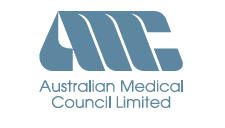
Accreditation or Professional Recognition
The Flinders University Medical Program (MD) is accredited by the Australian Medical Council. Upon completion of the MD, graduates will be eligible for provisional registration with the Medical Board of Australia as a medical practitioner. To qualify for registration with the Medical Board of Australia, on graduation you will need to complete a year as a hospital intern. Internship allocations in South Australia are managed by South Australian Medical Education and Training.
No.1 in SA
in Medicine for learner engagement, learning resources, overall educational experience, student support and teaching quality.
The Good Universities Guide 2025 (undergraduate), public SA-founded universities only)
No. 1 in Australia
in Medicine for full-time employment.
The Good Universities Guide 2024 (postgraduate)
No. 2 in Australia
in Medicine for student support.
The Good Universities Guide 2024 (undergraduate)
Discover South Australia.
Where world-class education meets laid-back coastal living. With pristine beaches, acclaimed wineries, and vibrant festivals at your doorstep, South Australia offers an unmatched student experience.
Photo credit: SATC
Get inspired.
Discover more about Flinders University’s Bachelor of Clinical Sciences / Doctor of Medicine.
Study Medicine at Flinders: Meet Cassidy
Meet Cassidy, a Canadian international student who is chasing her dream of becoming a doctor at Flinders University in Adelaide, Australia.
“My learning experience at Flinders has been fantastic so far. While the transition from high school to university initially felt daunting, the resources and support provided by teachers and tutors have been invaluable in helping me navigate this change.”
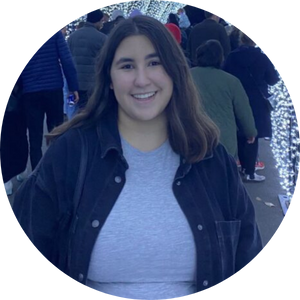
Gamze Bakan
Bachelor of Clinical Science/Doctor of Medicine
“The clinical placements in both urban and rural areas were the highlights of my degree. They gave me the opportunity to work with and learn from my future colleagues, and to familiarise myself with the professional standard and future employers. These placements have well prepared me for the transition from a medical student to a future doctor.”
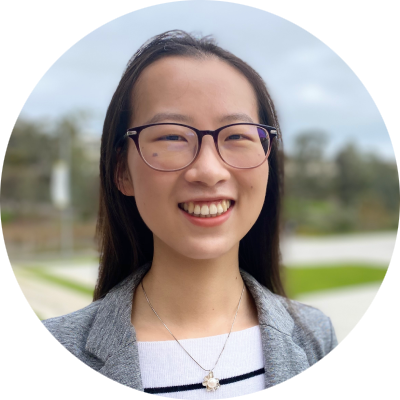
Keren Wu
Bachelor of Clinical Science/Doctor of Medicine
Need support?
International Student Services (ISS) is the first point of contact for international student support. The university also offers everything from cultural, health, and wellbeing services, to academic support.
Campus tours
Take a virtual tour of our campuses, guided by your fellow international students.
FUSA
Flinders University Student Association (FUSA) is the heart of the Flinders Experience. FUSA is where you'll find out about events, club memberships, and extracurricular activities.
Accommodation.
Adelaide has many accommodation options for international students. You can choose to live on campus, at our city accommodation provider The Switch, or in rental accommodation.
Flinders offers a vibrant, fun, supportive uni experience you’ll remember for a lifetime.
Need support?
From cultural, health and wellbeing services, to study and financial support, enrolment advice and more, we’re here to help.
Student clubs
Flinders University Student Association (FUSA) is the heart of the Flinders Experience. FUSA is where you’ll find out about events, club memberships and extracurricular activities.
Campus facilities
Flinders’ campuses are hubs of activity, with retail and food outlets, library spaces, study and chill spaces and more.
Learn from the experts.
Our incredible teaching and professional staff are experts in their fields and well-connected to the industry.
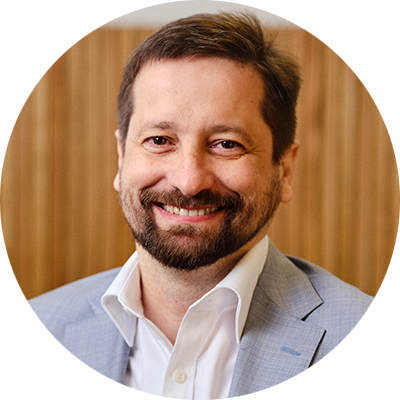
MD Director, Senior Lecturer
Dr Michal Wozniak
Dr Michal Wozniak is a Senior Lecturer and Director of the Medical Program, with extensive experience in clinical education and medical training. He oversees the design and delivery of the MD program, coordinates clinical skills training, and supports students in simulated and real-world clinical environments.
His career includes leadership roles in medical programs at Flinders University and the University of Adelaide, and he is a qualified general practitioner (FRACGP).
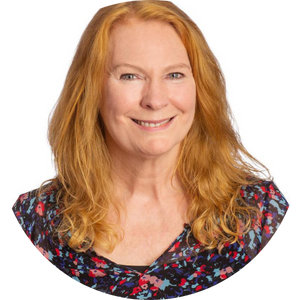
Course Coordinator (Clinical Sciences)
A/Prof Christine Barry
Associate Professor Christine Barry is an anatomist and musculoskeletal neurobiology researcher with expertise in pain, sensory nerves, and neuro-immune regulation. Along with her role as Course Coordinator, she teaches across Clinical Sciences and Medicine, and co-convenes the Teaching Specialist Community of Practice.
Since joining Flinders in 2011, she has received multiple national and university teaching awards and leads the Musculoskeletal Neurobiology Laboratory within the Flinders Health and Medical Research Institute.
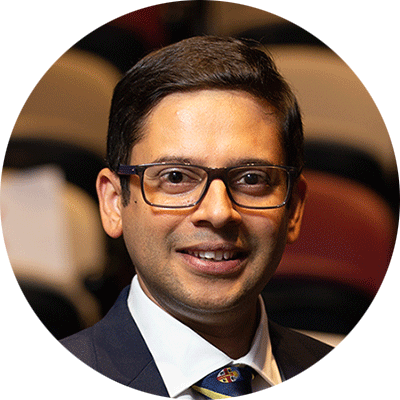
MD Deputy Director, A/Prof Savio (George) Barreto
Associate Professor Savio (George) Barreto is a Gastrointestinal, HPB and Liver Transplant surgeon, academic, and researcher with extensive experience in clinical teaching and surgical training. He teaches across the MD program, coordinates surgical skills and clinical placements, and supports students in both simulated and real-world hospital settings.
George brings years of hands-on surgical experience and research expertise to his teaching, ensuring students gain practical insight alongside their theoretical learning.
Gain real world experience.
From your first year, you’ll build practical skills through workshops, team-based learning, and time in the Clinical Skills and Simulation Unit.
As you progress, you’ll undertake extensive clinical placements in hospitals and community settings across Adelaide, the Northern Territory, or rural and remote communities. Working alongside experienced clinicians and real patients, you’ll gain the hands-on experience and confidence needed to succeed as a medical professional.
The Doctor of Medicine (MD) at Flinders University delivers high-quality clinical and academic training, combining biomedical sciences with an understanding of health in social contexts.
In years 1 and 2, students are based at the Adelaide campus, with clinical rotations in years 3 and 4 offered across Adelaide and rural South Australia.
As the program is clinically based, all students must complete mandatory clearances and immunisation requirements for placements in South Australia.
In your final year, you may be able to undertake 12 weeks of clinical electives anywhere in the world.
“I wanted [a university] with inspiring educators, a strong student-to-teacher ratio, and teaching methodologies. That is when I discovered Flinders and it was the only university I applied to.”
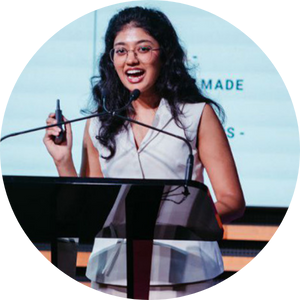
Veanna Ranka
Bachelor of Clinical Science/Doctor of Medicine
Gain real world experience.
From your first year, you’ll build practical skills through workshops, team-based learning, and time in the Clinical Skills and Simulation Unit.
As you progress, you’ll undertake extensive clinical placements in hospitals and community settings across Adelaide, the Northern Territory, or rural and remote communities. Working alongside experienced clinicians and real patients, you’ll gain the hands-on experience and confidence needed to succeed as a medical professional.
The Doctor of Medicine (MD) at Flinders University delivers high-quality clinical and academic training, combining biomedical sciences with an understanding of health in social contexts.
In years 1 and 2, students are based at the Adelaide campus, with clinical rotations in years 3 and 4 offered across Adelaide and rural South Australia.
As the program is clinically based, all students must complete mandatory clearances and immunisation requirements for placements in South Australia.
“I wanted [a university] with inspiring educators, a strong student-to-teacher ratio, and teaching methodologies. That is when I discovered Flinders and it was the only university I applied to.”

Veanna Ranka
Bachelor of Clinical Science/Doctor of Medicine
Let’s get started on your Flinders’ experience.
Concerned about your ATAR? If it doesn't meet the course requirement, contact us to discuss your options—we're here to help.
We know not everyone begins medical studies the same way, so we offer a variety of pathways into Flinders MD Program.
When choosing your preferences through SATAC, other Flinders degrees you might want to include in your list are:
- Entry requirements
- Application options
Applicants must achieve a minimum Year 12 ATAR of 95.00 or above or an equivalent score from an equivalent qualification to be considered.
Should there be more eligible applicants than places available for the course, selection will be based on a rank score of their Year 12 (or equivalent) qualification score.
This course has limited places. Applications may close without notice.
The Inherent Course Requirements statement is designed to help prospective students make informed decisions about whether they will be in a position to complete the requirements of the Bachelor of Clinical Sciences/Doctor of Medicine. Prospective students who intend to enrol in this course should carefully check the requirements listed in the document below to determine whether they are able to meet them.
If you don’t meet our English language entry requirements and need to improve your English language proficiency, you can do so through Flinders University Academy – or our approved English Language Instruction Course for Overseas Students (ELICOS) providers.
This means that you can attend the required English language tuition at approved ELICOS providers and gain direct entry into university without an IELTS or TOEFL test.
If you don’t meet our academic entry requirements, you can still gain entry to Flinders University through Flinders University Academy. With a range of diplomas, foundation and English language courses, students can find a direct pathway into the destination degree of their choice.
How to apply
Select your course.
Check entry requirements.
Check your eligibility for credit.
Obtain certified documents.
Submit your application and documents.
Application options.
Apply online
Follow up our step-by-step guide to help you with your application to study at Flinders.
Find an agent
Our registered education agents around the world understand the university system and will guide you through the application process.
Contact us
Get in touch with our team to discuss your preferences, career options, pathways, and course and entry requirements. We are here to ensure you have everything you need to choose the right degree for you.
Don't meet academic requirements? Don't worry. We'll help you get there.
Preparatory courses
If you lack required English proficiency, improve through Flinders University Academy or approved ELICOS providers for direct university entry without IELTS/TOEFL tests.
Flinders University Academy
If you do not meet entry requirements for your desired degree, Flinders University Academy will provide you with a direct pathway into the destination degree of your choice.
Frequently asked questions.
Over the years, many questions have been asked by students before. For the quickest answers view our frequently asked questions or browse the full list @ Ask Flinders.
Yes. If you’ve completed Year 12, you can apply for the combined Bachelor of Clinical Sciences / Doctor of Medicine (MD) pathway in South Australia or the Northern Territory. This pathway allows you to complete both degrees in just six years, without needing a separate undergraduate degree first.
To progress from the Bachelor of Clinical Sciences into the MD, you must achieve a minimum GPA of 5. In the Northern Territory, there are 12 places available each year for the Bachelor of Clinical Sciences at Charles Darwin University, with the MD delivered by Flinders University. Applicants must also demonstrate eligibility for NT origin status.
This pathway provides a clear, streamlined route into medicine for school leavers, combining academic, clinical, and professional training to prepare you for hospital placements, practical experience, and ultimately, registration as a medical practitioner.
Yes. Year 12 students who undertake an extension studies topic at Flinders University are not considered to have commenced tertiary studies and are eligible to apply for the Bachelor of Clinical Sciences/Doctor of Medicine (BCS/MD).
Yes. Alongside obtaining an ATAR, applicants must also complete the University Clinical Aptitude Test for Australia and New Zealand (UCAT ANZ). Final ranking for a place is determined by combining scores from the applicant's Year 12 subject results that are used to calculate the ATAR (or equivalent) and their UCAT ANZ results.
It is expected that applicants will need to achieve an ATAR of 95 or above (after the addition of any relevant adjustment factors) to be competitive for a place. Ranking for offers of places will be based on a rank combining Year 12 subject results (90%) and a UCAT ANZ-derived score (10%), which will be based on the four sections of the test (Verbal Reasoning, Decision Making, Quantitative Reasoning and Situational Judgment).
The Bachelor of Clinical Sciences / Doctor of Medicine is a six-year combined program, with the first two years focused on clinical sciences and the final four years on medical training.
You’ll take part in practicals, workshops, and team-based learning from your first year, developing skills in the Clinical Skills and Simulation Unit. As a medical student, you’ll work with tutors, patients, and practising clinicians, and complete extensive clinical placements in hospitals and community settings.
After graduation, you’ll complete a one-year hospital internship to qualify for registration with the Medical Board of Australia. From there, you can pursue specialist training in areas like surgery, paediatrics, cardiology or general practice. You may also build a career in research, public health, global health, or health administration, making an impact both locally and internationally.
- Applications are completed via SATAC
- Visit: satac.edu.au
Check the entry requirements.
Consider the admission pathways available to you.
Register to sit the University Clinical Aptitude Test for Australia and New Zealand (UCATANZ). Registrations open in March each year.
Choose other courses to include in your preferences.
Visit SATAC and submit your application online.
The table below shows ATAR and Selection Rank data for students offered a place wholly or partly on the basis of ATAR commencing in Semester 1, 2025. It is limited to applicants that have recently completed secondary education (within the last two years). Data may reflect multiple courses available within a suite of courses.
Notes:
<5 – less than 5 ATAR based offers made
N/A – This course uses additional selection criteria and therefore Selection Rank is not published
| ATAR-based offers only across all offer rounds | ATAR - Excluding adjustment factors | Selection Rank - ATAR plus any adjustment factors |
|---|---|---|
| Highest rank to receive an offer | 99.95 | N/A |
| Median rank to receive an offer | 99.55 | N/A |
| Lowest rank to receive an offer | 95.25 | N/A |
The table below gives an indication of the likely peer cohort for new students in this course. It provides data on students who commenced study in this course in Semester 1, 2025 including those admitted through all offer rounds and international students studying in Australia. Applicant background groupings are based on educational background, not basis of admission. Data may reflect multiple courses available within a suite of courses.
Notes:
<5 – the number of students is less than 5
N/P – Not published: the number is hidden to prevent calculation of numbers in cells with less than 5 students
| Applicant background (Semester 1, 2025) | Number of students | Percentage of all students |
|---|---|---|
| Higher education study (includes a bridging or enabling course) | 0 | 0 |
| Vocational education and training (VET) study | 0 | 0 |
| Work and life experience | 0 | 0 |
| Recent secondary education - Admitted solely on the basis of ATAR (regardless of whether this includes the consideration of adjustment factors such as equity or subject bonus points) | 0 | 0 |
| Recent secondary education - Admitted where both ATAR and additional criteria were considered (e.g. portfolio, audition, extra test) | 36 | 47% |
| Recent secondary education - Admitted on the basis of other criteria only and ATAR was not a factor (e.g. special consideration pathways) | 0 | 0 |
| International Students | 40 | 53% |
| All students | 76 | 100% |
Yes. You can apply the Universities Equity Scheme when applying for the Bachelor of Clinical Science/Doctor of Medicine. For more information about the Universities Equity Scheme, visit the SATAC Adjustment Factors page
Increase your chances of studying at Flinders as a rural and remote resident.
An annual sub quota is available for applicants from rural and remote areas. To be considered for the rural and remote subquota you must submit a Statutory Declaration to SATAC within 10 working days of your application confirming you’ve lived in a non-metropolitan area of Australia (Remoteness Classifications RA2–RA5) for:
* At least 5 consecutive years, or
* 10 cumulative years, from birth (i.e. during any period of your life)
Eligibility is based on your primary residential address.
Applicants can check their eligibility in accordance with the definition above using the Australian Government's Health Workforce Locator. Enter the address you wish to search for using the 'ASGS Remoteness Area' '2021'. As part of a transition year for 2026 entry, applicants can also be assessed against the ‘ASGS Remoteness Area’ ‘2016’ if not eligible under the 2021 layer. For 2027 entry, applicants will only be assessed using the 'ASGS Remoteness Area' '2021' layer.
Guaranteed enrolment for up to 5 Indigenous applicants.
An annual sub quota of up to five places is available for Indigenous applicants. To be considered for the Indigenous subquota you must submit to SATAC a document signed under Common Seal from an incorporated Aboriginal and/or Torres Strait Islander organisation in the community from which you originate or are recognised, within 10 working days of your application.
To be eligible for this subquota you must be an Aboriginal and/or Torres Strait Islander in accordance with the Commonwealth definition which requires that you:
- be of Aboriginal or Torres Strait Islander descent, and
- identify as an Aboriginal or Torres Strait Islander, and
- be accepted as an Aboriginal or Torres Strait Islander in the community in which they live or have lived.
If you are unable to provide a document signed under Common Seal you may provide a Statutory Declaration to SATAC confirming you are of Aboriginal or Torres Strait Island descent.
Applicants will need to achieve a minimum ATAR of 90 or above (after the addition of eligible adjustments) and a competitive UCAT rank to be considered a place in this sub quota.
Frequently asked questions.
Get in touch with us to discuss your preferences, career options, pathways and course and entry requirements. We are here to ensure you have everything you need to choose the right degree for you.
The type of documents you will need for your international application depends on what course you are applying for and which country you are a citizen of. Course requirements are stated on each course webpage. Examples of documentation you might expect to provide for your international application include a copy of personal identification, academic transcripts or a resume.
Once you have received your Confirmation of Enrolment (CoE) letter from Flinders University, you should apply for your visa as soon as possible as visa processing times can vary. You will receive your CoE letter after you have applied to study at Flinders, accepted your offer and paid the semester tuition fee.
No. Part-time study is currently not available for international students due to visa conditions.
No. Online study is currently not available for international students due to visa conditions.
If you don’t meet our English language or academic entry requirements, you can still gain entry to Flinders University through our on-campus pathway provider Flinders University Academy. Alternatively, you can improve your English language proficiency through our approved English Language Instruction Course for Overseas Students (ELICOS) providers.
You can apply to study as an international student directly through Flinders University or an authorised agent in your country.
If you are from one of the countries listed here, you are required to apply via an education agent. If you reside onshore in Australia, you will not require an agent even if you are from the countries listed above.
Yes. As a student visa (subclass 500) holder, you and your dependents (family members) can work up to 48 hours a fortnight when your course of study is in session. If you have started a master degree by research or doctoral degree, this rule does not apply to you and working hours are not restricted.
Our dedicated International Student Services (ISS) team provide a range of programs supporting your enrolment, study and social life, as well as a referral service to facilities on campus and within the local community.
![]()
Sturt Rd, Bedford Park
South Australia 5042
South Australia | Northern Territory
Global | Online
CRICOS Provider: 00114A TEQSA Provider ID: PRV12097 TEQSA category: Australian University








